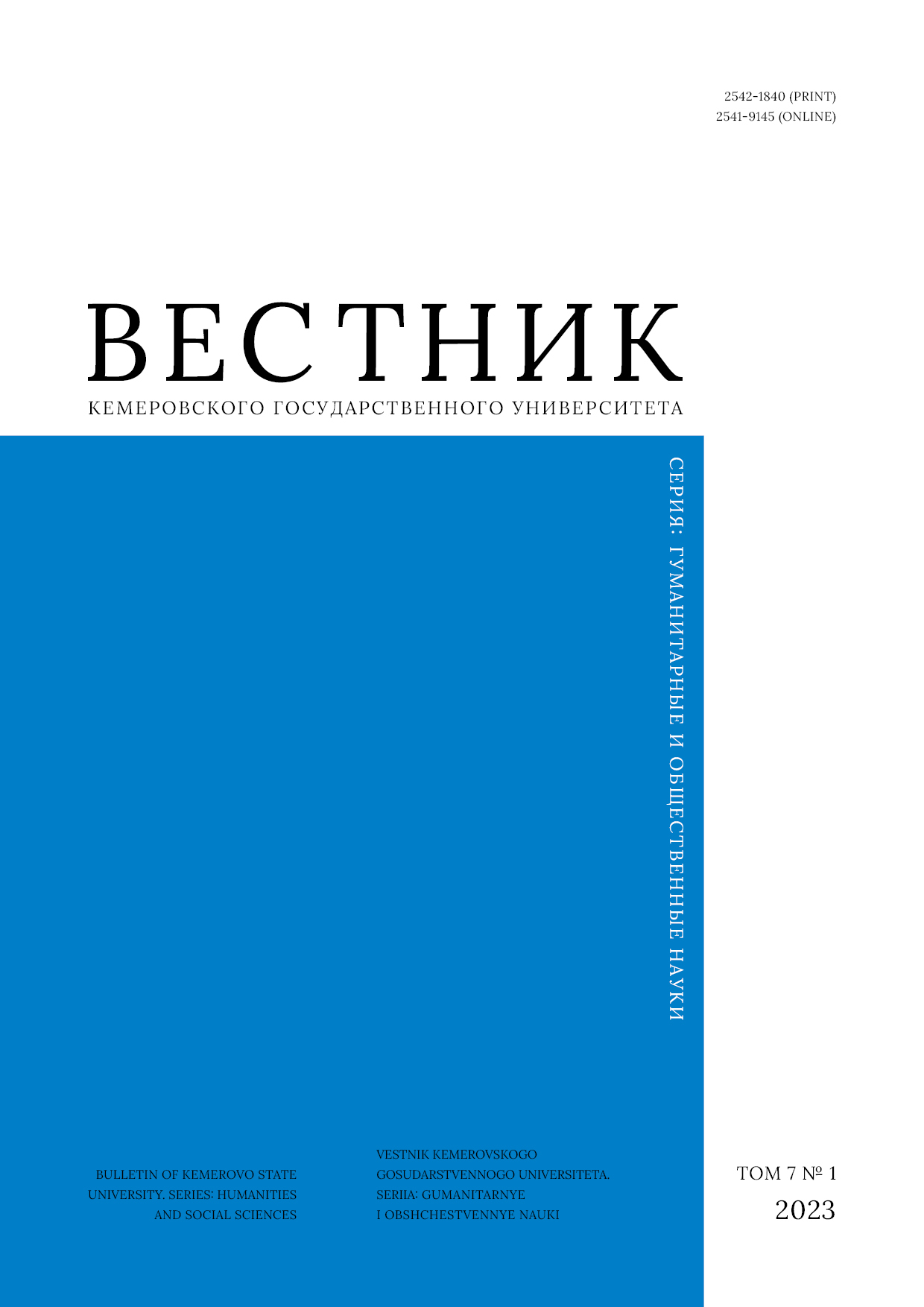Tomsk, Russian Federation
The judicial digitalization and automation are currently at its final stage. This article focuses on the concept of digitalization in court. The author analyzed the documents that regulate the digitalization in the Russian judicial system and assessed its result, e.g., in the sphere of interaction with trial participants. The article clarifies the correlation between automation, informatization, and digitalization and describes the trends, stages, and achievements in the digital development of the judicial system in the light of federal targeted programs. The author believes that the terms related to the digitalization of the legal system still have a vague status because they exist at the intersection of the procedural branches of general law and information law. Automation makes it possible to monitor trials and prevent violations of deadlines. Digital information about courts and trials may encourage citizens for a more active interaction with the judicial system. Unfortunately, the digital transformation of Russian courts is at its earliest stage and has a long way to go. Eventually, modern technologies will improve the quality of the judicial system.
automation, informatization, digitalization, judicial power, technologies
1. Malko A. V., Kostenko M. A. Digital technologies in the judicial system: problems of implementation. Rossiiskaia iustitsiia, 2019, (2): 52-54. (In Russ.) EDN: https://elibrary.ru/YUVKLJ
2. Kurochkin S. A. Digital technologies and justice efficiency. Lex Russica, 2022, 75(10): 152-163. (In Russ.) https://doi.org/10.17803/1729-5920.2022.191.10.152-163
3. Yarkov V. V. Electronic justice and the principles of the civil process. Zakon, 2011, (2): 44-50. (In Russ.) EDN: https://elibrary.ru/NSPQJD
4. Trezubov E. S. Electronic justice in the Russian civil process. Digital environment law, eds. Podshivalov T. P., Titova E. V., Gromova E. A. Moscow: Prospekt, 2022, 633-640. (In Russ.) EDN: https://elibrary.ru/MSQIFO
5. Afanasyev S. F. On the correlation between the "electronic justice" and "electronic proceedings" categories within the framework of jurimetrics. Administrator suda, 2021, (2): 3-6. (In Russ.) https://doi.org/10.18572/2072-3636-2021-2-3-6
6. Yaroshenko T. V. The application of information technology in a civil and arbitration procedure (electronic justice). Magistrate judge, 2021, (3): 34-38. (In Russ.) https://doi.org/10.18572/2072-4152-2021-3-34-38
7. Polyakov S. B., Gilev I. A. The subject area of informatization of court decisions. Vestnik Perm. un-ta. Juridicheskie nauki, 2021, (53): 462-487. (In Russ.) https://doi.org/10.17072/1995-4190-2021-53-462-487
8. Branovitsky K. L. The influence of information technology on civil proceedings. Arbitrazh and Civil Procedure, 2018, (7): 24-27. (In Russ.) EDN: https://elibrary.ru/XRSKUX
9. Dobryakov D. A., Kasa I., Sukhostavskaya Yu. V. Application of digital technologies in litigation and dispute resolution. RUDN Journal of Law, 2021, 25(2): 461-481. (In Russ.) https://doi.org/10.22363/2313-2337-2021-25-2-461-481
10. Shagieva R. V. Legal activity and its varieties in modern Russian society. Journal of Russian Law, 2004, (10): 88-98. (In Russ.) EDN: https://elibrary.ru/ZSHRUH
11. Rusakova E. P. The impact of digitalization on civil proceedings in Russia and abroad: experience of China, India, Singapore, EU, USA, South Africa, and some other countries. Dr. Law Sci. Diss. Abstr. Moscow, 2022, 45. (In Russ.)
12. Yakusheva E. E. Digital technologies and assurance of the availability of justice. Arbitrazh and Civil Procedure, 2021, (7): 8-12. (In Russ.) https://doi.org/10.18572/1812-383X-2021-7-8-12
13. Kantser Yu. A. Electronic justice in an arbitration procedure: new challenges and adaptation of judicial proceedings. Arbitrazh and Civil Procedure, 2021, (2): 36-40. (In Russ.) https://doi.org/10.18572/1812-383X-2021-2-36-40
14. Trezubov E. S. Videoconferencing in courts: a forced transformation in the conditions of the pandemic. Administrator suda, 2020, (2): 38-43. (In Russ.) EDN: https://elibrary.ru/NTGIGB
15. Tikhomirov Y. A., Kichigin N. V., Tsomartova F. V., Balkhaeva S. B. Law and digital transformation. Law. Journal of the Higher School of Economics, 2021, (2): 4-23. (In Russ.) https://doi.org/10.17323/2072-8166.2021.2.4.23
16. Adashkin D. A. The essence and social functions of the judiciary in modern Russia. Aktual'nye problemy rossijskogo prava, 2021, 16(8): 42-51. (In Russ.) https://doi.org/10.17803/1994-1471.2021.129.8.042-051
17. Balayan E. Yu., Bobrova D. D. Digital law as an instrument of constitutional and legal influence. Constitutional and Municipal Law, 2022, (10): 25-28. (In Russ.) https://doi.org/10.18572/1812-3767-2022-10-25-28
18. Porokhovsky A. A. Digitalization and artificial intelligence: prospects and challenges. Ekonomika. Nalogi. Pravo, 2020, 13(2):84-91. (In Russ.) https://doi.org/10.26794/1999-849X-2020-13-2-84-91
19. Borisova V. F. Electronic justice platforms in civil cases: the status, risks, prospects. Arbitrazh and Civil Procedure, 2021, (4): 13-17. (In Russ.) https://doi.org/10.18572/1812-383X-2021-4-13-17
20. Kapustin O. A. Principles of organization of judicial activity in the information society. Rossiiskaia iustitsiia, 2020, (1): 51-55. (In Russ.) EDN: https://elibrary.ru/PRFTMP
21. Digital technologies and jurisdictional activity: the image of the future justice in civil cases, eds. K. L. Branovitsky, V. V. Yarkov. Moscow: Statut, 2022, 328. (In Russ.)
22. Argounov A. V. Will artificial intelligence judge? Herald of Civil Procedure, 2018, 8(5): 44-61. (In Russ.) EDN: https://elibrary.ru/VNBSKG
23. Makutchev A. V. Modern possibilities and limits of artificial intelligence introduction into the justice system. Aktual'nye problemy rossijskogo prava, 2022, 17(8): 47-58. (In Russ.) https://doi.org/10.17803/1994-1471.2022.141.8.047-058
24. Chernykh I. I. Legal forecasting in the field of civil proceedings in the context of development of information technologies. Aktual'nye problemy rossijskogo prava, 2019, (6): 58-72. (In Russ.) https://doi.org/10.17803/1994-1471.2019.103.6.058-072
25. Afanasyev S. F. On the issue of legislative regulation of artificial intelligence. Rossiiskaia iustitsiia, 2020, (7): 46-49. (In Russ.) EDN: https://elibrary.ru/RIVUFM
26. Burdina E. V. Digitization of judicial activities: areas, forecasts and risks. Administrator suda, 2020, (2): 10-14. (In Russ.) EDN: https://elibrary.ru/BWYATY
27. Gritsenko E. V., Yaluner Yu. A. Right to judicial protection and access to court in the era of digitalization: value of experience in common law countries for Russia. Sravnitel'noe konstitutsionnoye obozreniye, 2020, (3): 97-129. (In Russ.)
28. Reshetnyak V. I. Electronic justice and transparency of the judicial system. Elektronnoe prilozhenie k "Rossiiskomu yuridicheskomu zhurnalu", 2011, (3): 51-55. (In Russ.) EDN: https://elibrary.ru/NUFYVV


















